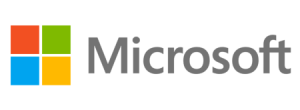Hacking, hacking, everywhere hacking. And not the good kind either. We’re talking cracking hacking.
Take the Sony hack for instance. Bunches of movies set for Christmas release are now available online for free, for those willing to break the law and invoke the displeasure of the MPAA while firing up the ol’ BitTorrent. Worse than that: even more bunches of Sony employees have had their financial lives turned upside down, with all of their personal information leaked. Not so bad, however, is the news that “The Interview” won’t be making an appearance on a screen near you anytime soon.
Oddly, it’s that last tidbit that’s been getting the most press. That, and the ongoing argument on who’s to blame for the Sony crack hack.
At first, U.S. authorities said that the North Koreans didn’t do it. Then they said they did. The North Koreans countered with a “no-way-Jose” and offered to help in the hunt to find the real culprit, which elicited an adamant “no-way-back-atcha” from the U.S.
Christine Hall has been a journalist since 1971. In 2001, she began writing a weekly consumer computer column and started covering Linux and FOSS in 2002 after making the switch to GNU/Linux. Follow her on Twitter: @BrideOfLinux











